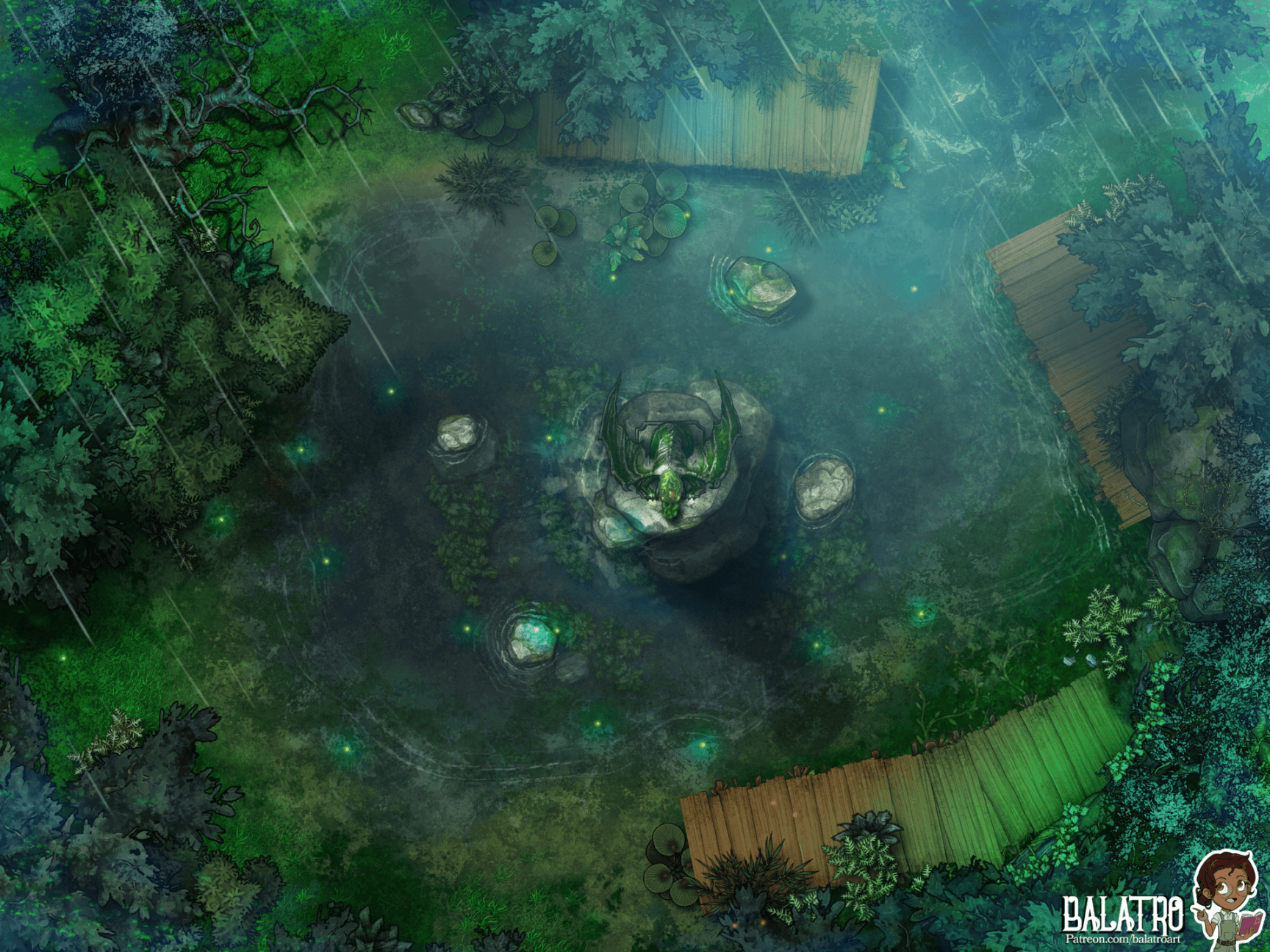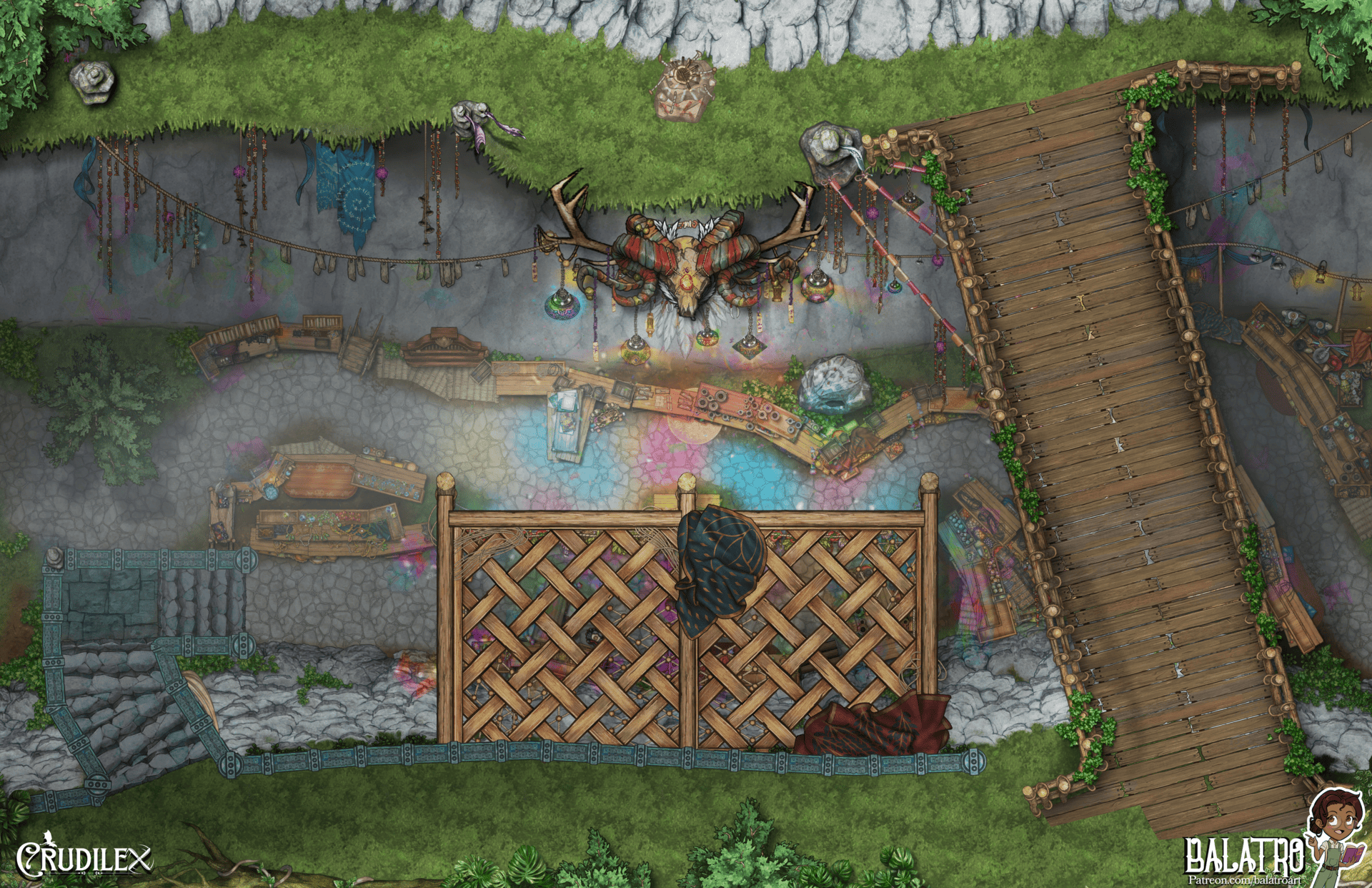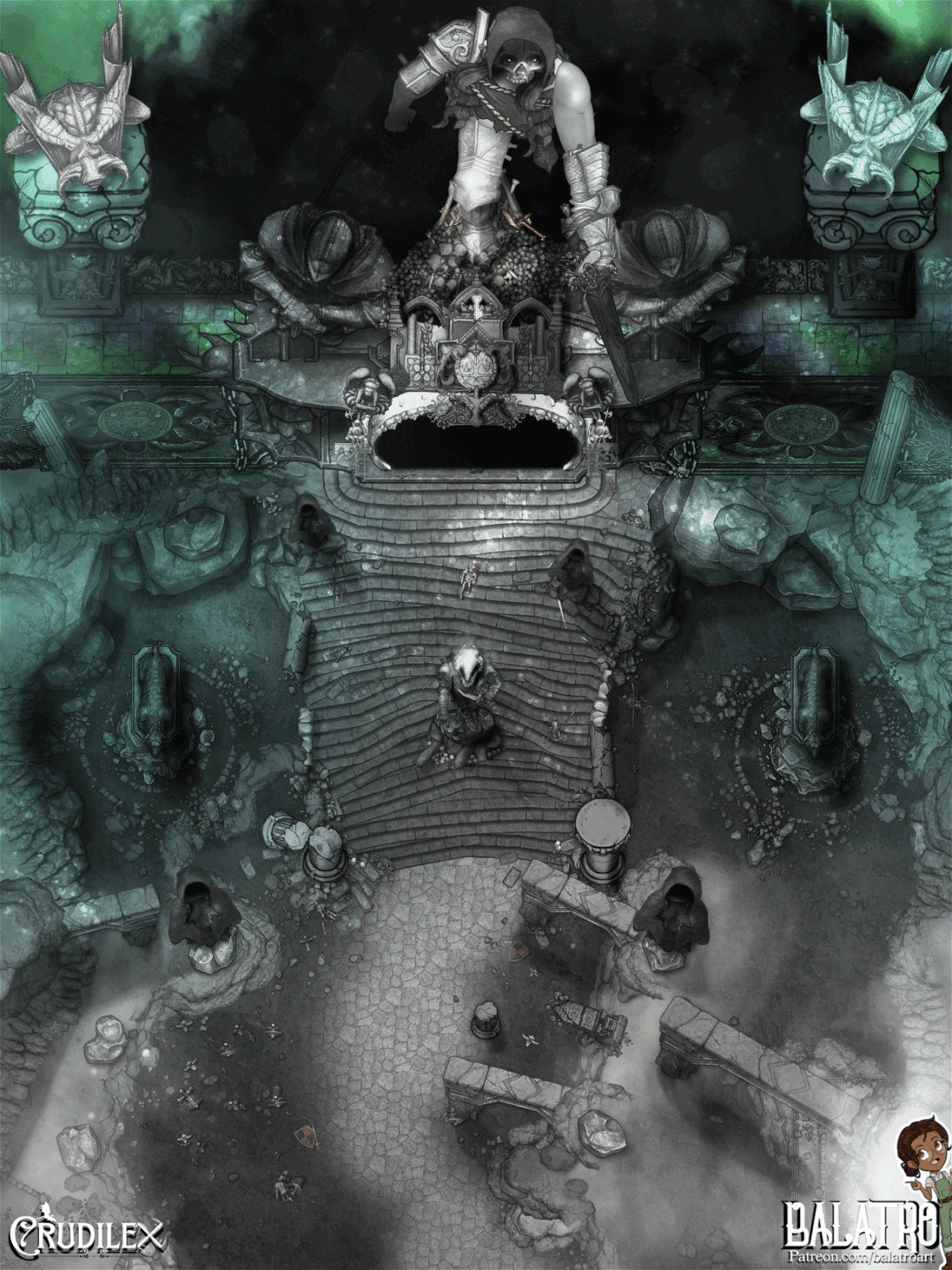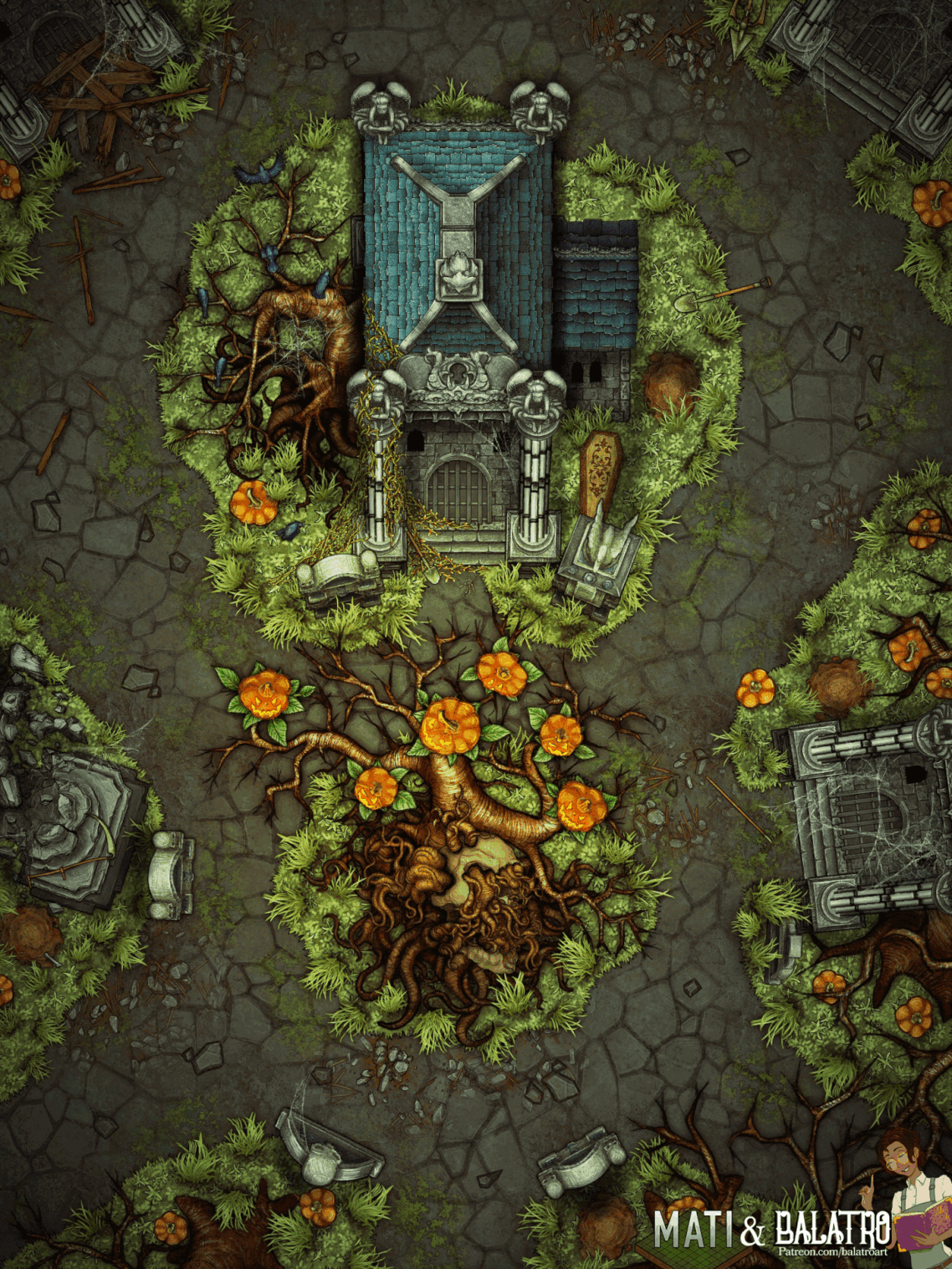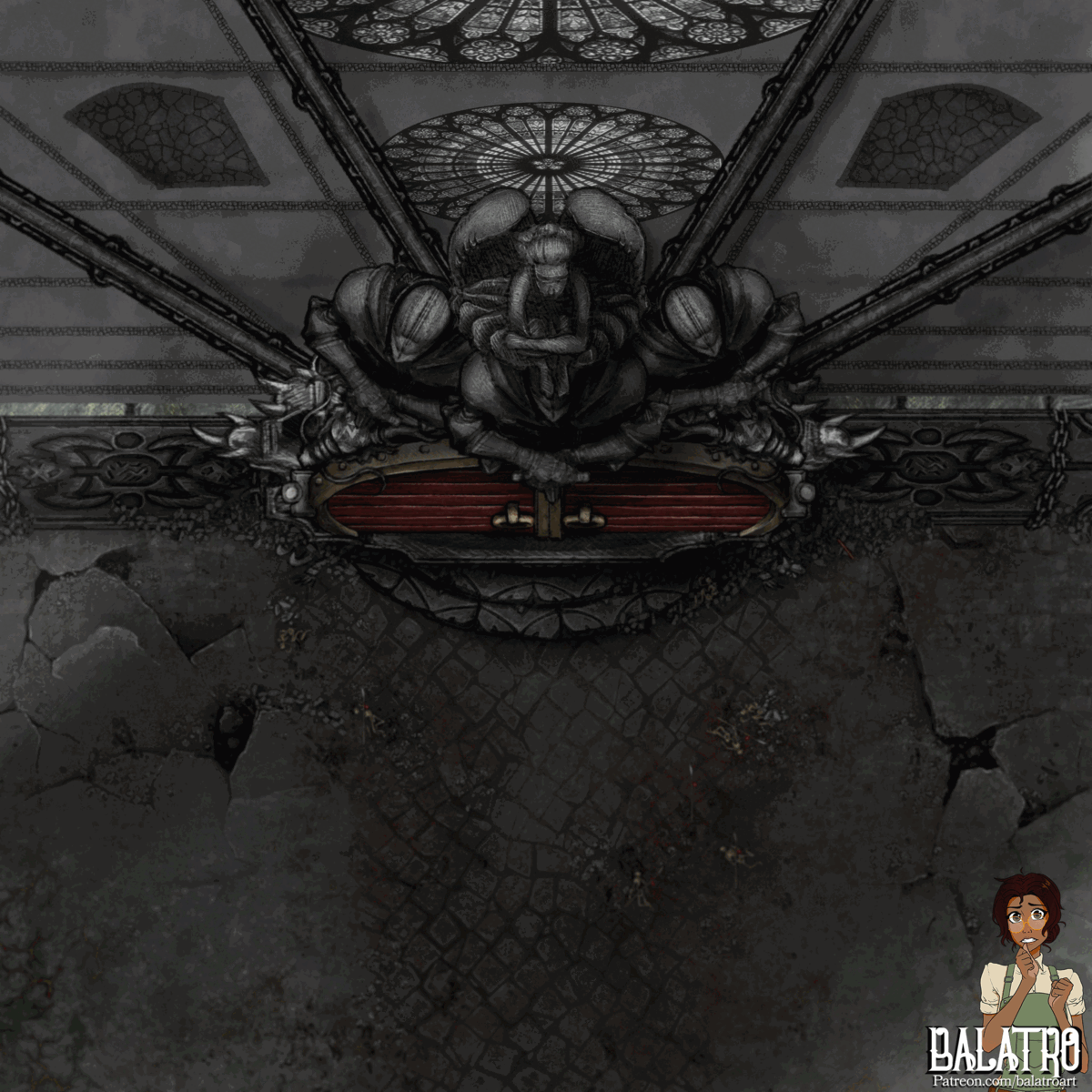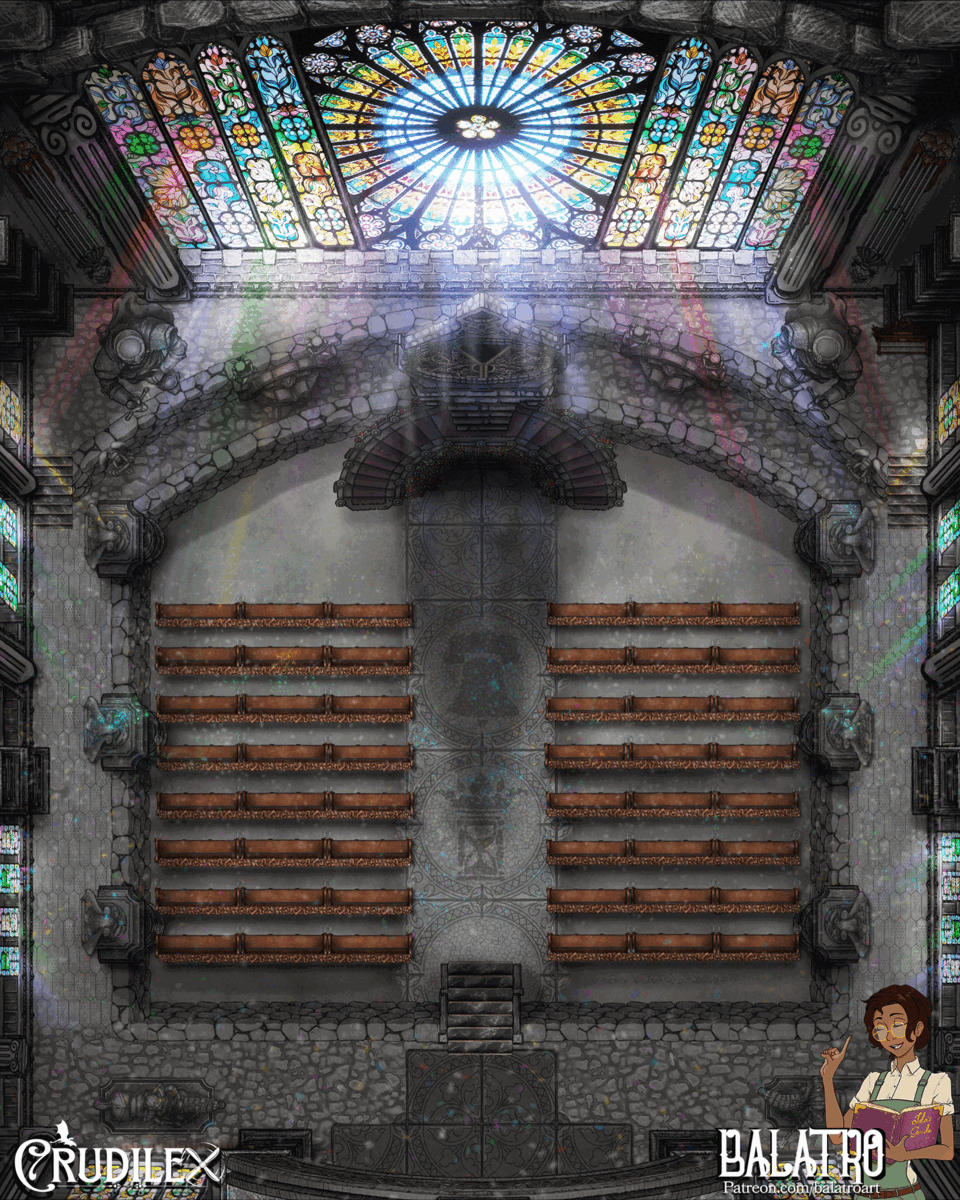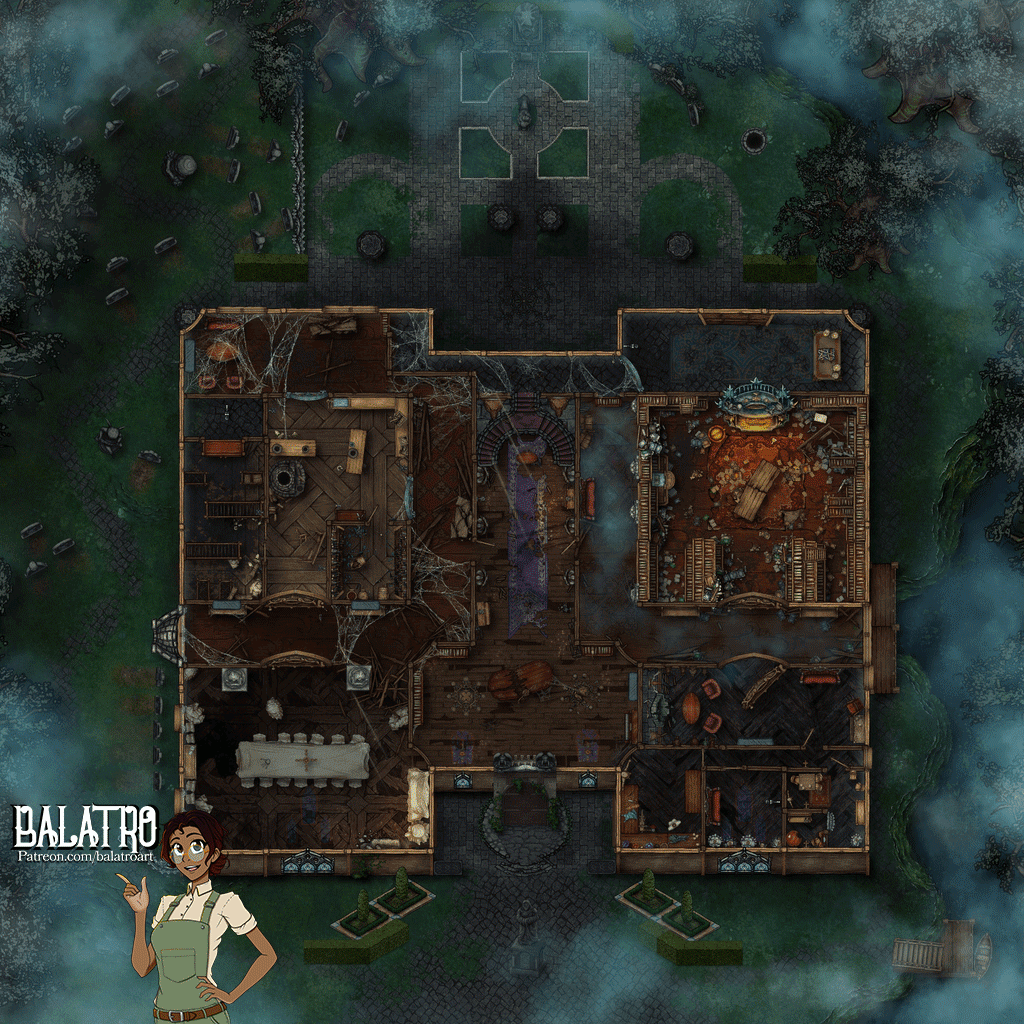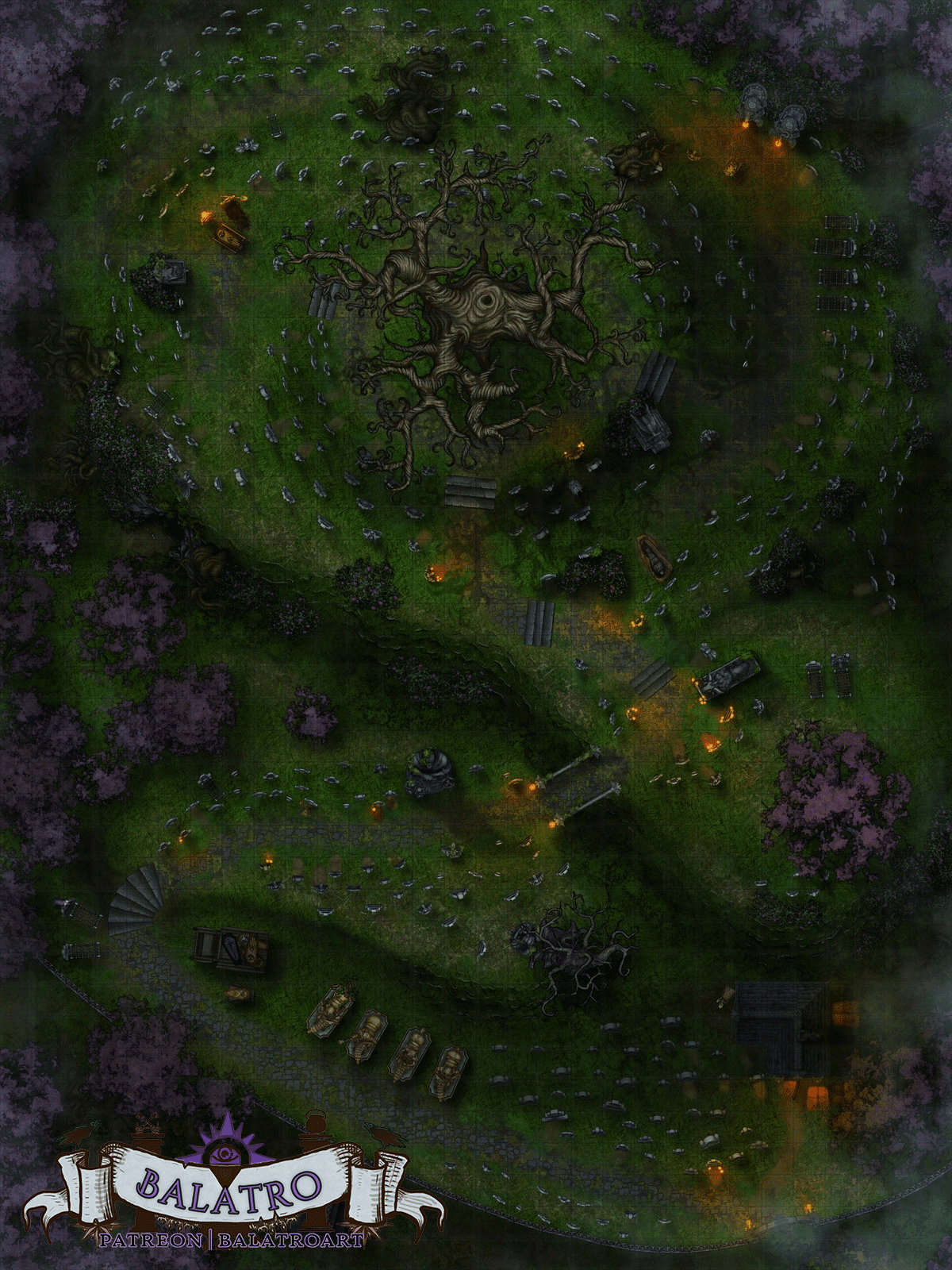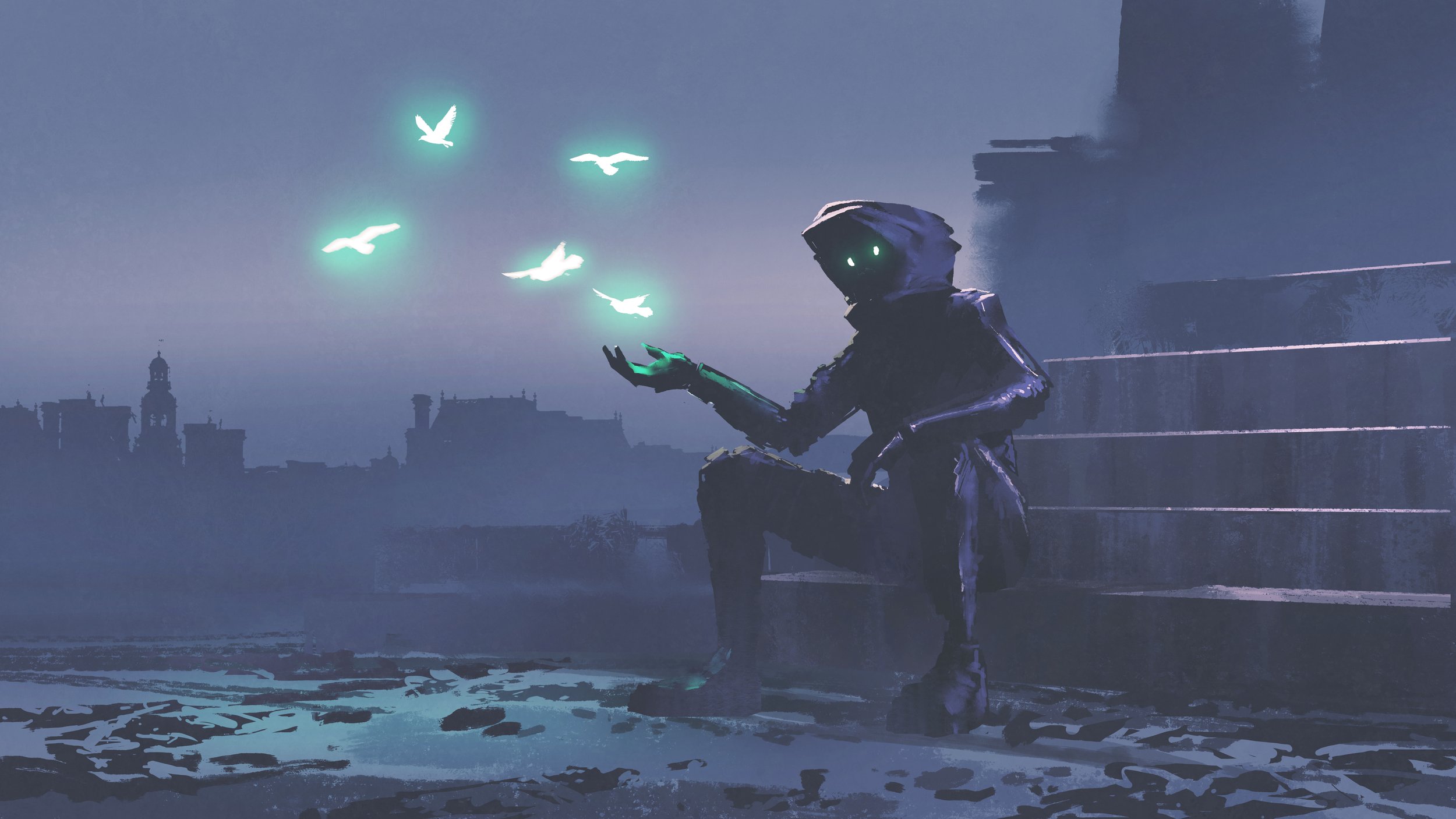
Haven of the undying
Qwolar
For three thousand years, Qwolar has endured as a sanctuary for the dead who will not die, its magic shielding its people from the grasp of the reaper. The borders of Qwolar are marked by a ring of white opal obelisks, ancient monoliths placed in times long past. These obelisks disrupt the natural cycle of life and death, halting it entirely within the country’s boundaries. Over time, it has become a frozen snapshot of history—a place where time is at a still of eternal Now.
Battlemaps set in this location
The Hallowed
The Hallowed are an immense army of skeletons, empty husks standing in endless anticipation of the day when the dark star swallows Crudilex into purgatory. Six million strong, this vast force of armored bones remains largely dormant, waiting silently outside the Palace of Immortals, their lifeless sockets fixed to the horizon. Above the endless ranks of the dead, the flags of Tanare hang in weathered tatters, faded and flapping weakly in the wind.
Palace of Immortals
Carved from the same opalescent material as the obelisks encircling the lands of Qwolar, the Palace of Immortals is bound by a spell of equal potency but opposite purpose. While the obelisks grant eternal life by severing the cycle of life and death, the enchantment of the palace imprisons those with immortality inside.
Any immortal being who dares to cross its threshold becomes ensnared, suspended in time and unable to leave the palace’s confines. Within its gleaming halls, countless halls and non-euclidean passages spiral out from the center throneroom and in this endless pocket reality interior are captured gods, spirits, and
immortal wanderers. Prisoners of Morgana in her castle. The prize occupant, The Phantom Coachmen, The personification of death itself trapped here so that the dead of the world beyond Qwolar might overrun the afterlife and spill into the living world, Accelerating the end of the world and the beginning of the invasion of the Hallowed.
Harlot's Veil
Legend holds that Harlot's Veil is the site of the first theft in Crudilex’s history, a place where the concept of larceny was born. bathed in shadow and secrecy, it is now the residence of Starger “Dust” Kencade, the immortal master thief. Having lived, died, and been reborn countless times over the centuries, Dust has retired here, though retirement for him is far from idle.
Despite his outward appearance as an aged, slow-moving man, Dust’s mind remains razor-sharp, his cunning undiminished. From Harlot’s Veil, he orchestrates the vast web of the Thieves Guild, serving as the shadowy power behind its throne. His influence spans thousands of guild chapters across Crudilex, with operatives carrying out his
will in every corner of the world.
The Veil itself is shrouded in myth, a haven for rogues and outlaws seeking ultimate sanctuary. Those who seek Dust’s favor must first prove their worth through acts of extraordinary daring or unparalleled cunning. If someone in the world manages to steal some of the artifacts of which the guild has its eyes on, legendary treasures that would make a myth of the hands that snatched them Dust will find them, And offer them a chance to be part of his personal cohort here in Qwolar, Hidden from the world. Beneath its small village façade lies a labyrinth of tunnels, vaults, and meeting halls, where plots are hatched, treasures are stashed, and the art of thievery is refined. It's here that Dust plots with this crew of perfect criminals, the ultimate legendary heist.
Ethos
The youngest of the three great griffins of Qwolar, Ethos is a figure of wisdom and endless curiosity. Alongside his brothers, he has spent thousands of years locked in a philosophical debate over the gift of immortality and how it should be wielded. Unlike his brothers, Ethos has chosen to lead by example, dedicating his eternal life to mastering countless disciplines and arts.
Ethos presides over a city that bears his name, the sole bastion of knowledge and enlightenment within the land of immortals. Famous for its libraries, academies, and halls of study, where scholars and students strive to emulate their ruler’s insatiable quest for understanding. In Ethos’s city, intellect is held in the highest regard, and the pursuit of knowledge is considered a sacred duty.
Pathos
The middle brother of the three great griffins, Pathos burns with impassioned zeal and righteous fury. Alongside his brothers, he has debated for thousands of years over the best way to approach the gift of immortality, though his stance is far more aggressive and confrontational. Pathos believes that the unnatural longevity granted by Morgana and the Opal Obelisks is a curse rather than a blessing, a perverse stagnation that has sapped the immortals of Qwolar of their drive, creativity, and ambition.
Pathos leads the Cult of Pathos, a fervent following devoted to his cause. To his followers, he is a prophet warrior, railing against his elder and younger brothers and vowing to destroy the Obelisks and their creator, Morgana, to bring an end to the immortality that has gripped Qwolar for millennia. Pathos argues that without the peril and fleetingness of mortal life, true substance and art cannot exist. In his eyes, the immortals of Qwolar have squandered their endless years, achieving nothing of value in three millennia of hollow existence.
Bone Orchard
The Bone Orchard is a hill of graves for the forsaken dead, whose bodies remain behind while their souls slip away to Whisperwind. In Qwolar, the magic of the opal obelisks does not work for everyone. Some bodies reject the immortality granted by the ancient spell, continuing to age and decay even though their souls can never pass into the afterlife. These unfortunate beings are collected and put to different uses depending on their state: some are armored and conscripted into the ranks of the Hallowed, while others—those deemed unsuitable for service—are abandoned here.
The Bone Orchard is a sorrowful sight. Graves are dug haphazardly, without thought or care, and there is no semblance of order. No headstones mark the dead, and the crypts and tombs are left open, filthy, and in disrepair. The ground is littered with broken bones and fragments of rusted armor. No rituals to honor the dead as these corpses are not truly gone; their essence continuing on, unable to be collected by the Coachmen to move on to purgatory. The Bone Orchard is more like a skeletal garbage heap more than a proper graveyard.
Rouge's Hearth
For the people of Qwolar, lifetimes pass unfolding into millennia, everyone knows everything about everyone else. There are no secrets left, no mysteries to uncover, and no surprises. Relationships, once rich and vibrant, have worn thin under the weight of eternity. For those who have grown utterly bored of trying to find meaning in the monotony of endless existence there is one sanctuary: Rouge’s Hearth.
The Hearth is a giant and infamous tavern located at the central crossroads of Qwolar, a meeting place where disillusioned immortals gather to drink away their despair, drowning centuries of ennui in tankards of ale and stronger brews. The tavern itself is a sprawling structure, cobbled together from history's long-forgotten relics, its walls lined with faded banners and artifacts from forgotten wars all over the world.
Inside the air is thick with smoke and laughter. Arguments flare and die just as quickly, as those who have already held countless debates find no new ground to cover. Whenever a Stranger passes through there is a spark of life in the drunken immortals, demanding any novel story or experience from an outsider. For most, Rouge’s Hearth is where they wait for the apocalypse, chasing oblivion one drink at a time.
Bander's Hill
In Qwolar, a land of immortals, undead, vampires, ghosts, and other eternal beings, there are those who yearn to recapture the feeling of mortal life. Despite their agelessness, they crave the experiences of living. These individuals gather at Bander’s Hill, a unique town where immortals spend eternity pretending to be alive.
The residents of Bander’s Hill adopt the personas of ordinary living people, engaging in activities and routines that mimic mortal life. Crafting new identities and histories to escape their endlessness. They play out these imagined identities as farmers, shopkeepers, artists, scholars, immersing themselves in the mundane to regain a sense of purpose.
In the center of Bander’s Hill is a modest restaurant surrounded by a small, well-tended farm. Despite the lack of a need for sustenance among Qwolar’s denizens, the act of growing and consuming food has become a novelty. The farm produces an array of vegetables, lovingly cultivated by the residents. To these immortals, the mundane has become extraordinary. The restaurant bustles with laughter and conversation, as the patrons savor their meals and pretend, if only for a while, that they are alive once more, fighting against the stagnation of eternal existence.
Logos
The eldest of the three griffin brothers, Logos leads his cult with unwavering dedication to logic and reason. Unlike his siblings, who are driven by passion and mastery, Logos approaches immortality with measured deliberation. To him, the gift of eternal life is neither inherently a blessing nor a curse—life and existence are a puzzle to be analyzed, understood, and controlled and immortality offers the best chance to achieve that goal. For thousands of years, the brothers have debated the implications of immortality, often clashing over what should be done with the unnatural gift bestowed upon them.
The Cult of Logos is methodical in its pursuits, focusing on strategies that protect Qwolar while seeking to uncover the ultimate truth of existence. They shun all impulses, believing the greatest tool of the immortal is patience. This calculated approach has made them valuable allies to those who can win their favor.
Logos sees leadership as a responsibility. As he demonstrates a clarity of purpose in a world otherwise drowning in chaos. Each action is considered and made only when necessary, the immortal has nothing but time, and so all choices can be ruminated on and executed flawlessly. However, his calculated demeanor often makes him seem cold or detached, a trait that puts him at odds with the fiery Pathos and the studious Ethos.
Whisperwind
Whisperwind is the realm of those immortals who have lost all physical form. rot, destruction, or a decay of the flesh, their bodies wither away until nothing remains but a lingering spirit. Because the Phantom Coachmen cannot come to claim them, these souls wander to the ethereal bastion of Whisperwind.
Within the woods, far from the usual cacophony of the more substantial immortals, the spirits' quieter voices resonate in the dark. The spirits of Whisperwind can communicate with each other through the near silent language of the dead Numa and spend their eternity in conversation with each other, heard in the night while crossing the woods. Best not to interrupt.
The Wizard Ambrald Pent
Having spent thousands of years mastering every spell, unraveling every theorem, and transcribing every note from every spellbook ever written, the wizard Ambrald Pent ascended to divinity through his unparalleled knowledge of magic. His understanding of the arcane was so complete that he sought to transcend mortality by sheer force of intellect.
However, in his quest to achieve ultimate power, Ambrald made a fateful choice. He Knew he must first achieve absolute essence. So found a way to bind himself to the very fabric of magic itself, the lay lines. using three melenia of study he succeeded, but in doing so, he inadvertently trapped himself within the confines of Qwolar.
The flood of mana ballooned his spirit beyond the confines of what can be held by a mortal- but due to the opal obelisks he could not die from the flood of power as he should have and the power grew within him, endlessly. Now, Ambrald Pent exists as a Deva, a divine entity. But he can never leave the realm of Qwolar. As outside his own power would instantly annihilate him. He is a being of endless mana, imprisoned by the very magic he sought to master. So He spends his eternity absently sculpting existence to his will, plunking at the strings fraying the thread holding the universe together like a child waiting for their parent to stop talking to a friend at the shop. Unable to enjoy the fruits of his ascension.
The Opal Obelisks
The Opal Obelisks are towering magical pillars that encircle Qwolar at the tops of the various peaks and mountains at the country's border, forming a barrier that prevents the Rider—or any divine being—from entering or exiting the region. They grant immortality to those within, halting the natural passage of souls to Purgatory, the land of the dead.
Crafted from a unique, opalescent material, the Obelisks interact with the soul in a way no other substance in Crudilex can. They sever the connection between the living and the afterlife, essentially preventing the soul from
touching the shadowy realm of Purgatory that overlays Crudilex. This parallel realm exists as a eternal reflection, occupying the same space as the living world but perceptible only to the dead. In Qwolar, the veil between life and death is like a hundred-foot indestructible blackiron wall.
As long as the Opal Obelisks stand, and Morgana, their creator, endures, the boundary between the living and the dead remains firm. The true cost of immortality in Qwolar, offered by the Obelisks, is the inevitable transformation of the body into something other than living flesh. Those who live long enough may find themselves reborn as something unrecognizable. And no soul that has lived beyond its time may escape the grip of Purgatory once they leave the Obelisks' protection.
The Fog
The Fog is a mercenary army composed entirely of Reborn—the undead who have returned to the living from the afterlife. Stationed in Qwolar when not out waging war, these Reborn have made a pact with the Phantom Coachmen. Typically, the Reborn are tasked with a specific quest upon their rebirth, but the Fog has a unique conflict of interest. If they fulfill their mission, they would be bound to the end of their journey and be collected by the Reaper. Fearing this fate, the Fog has rejected this part of their bargain and instead continued to evade Purgatory, living as fugitives from their inevitable end.
Rather than completing their quests, the Fog has dedicated themselves to spreading death wherever they go. They kill without hesitation, sowing chaos and destruction in every corner of the world. By aligning with whichever army promises the most carnage, they wage relentless wars to increase the number of souls lost to death, flooding purgatory with spirits. This continual slaughter keeps the Phantom Coachmen busy, unable to collect the souls of the Fog's mercenaries. They live without fear of the consequences, for the only thing they truly dread is the final, inevitable collection of their souls.
Mercy Weld
Qwolar is a hidden realm, few even know of its existence. If the world discovered a land where death could no longer claim its inhabitants, chaos would follow. Still, there are those who are aware of Qwolar's secrets, and when faced with terminal illness or the specter of death, they hurry past the Ivory Monoliths in search of sanctuary.
However, the magic of immortality does not heal the afflicted. The immortality offered here does not restore health it only prevents death. Those who arrive ill in Qwolar find themselves trapped in an endless cycle of sickness. But within the sanctuary of Mercy Weld, Lady Ambrosia—a rare unicorn—serves as healer. She uses her extraordinary gifts to comfort those who seek refuge at the
Weld, tending to their needs with compassion and care. Lady Ambrosia is a renowned enchanter, specializing in sleep magics. Drawing upon nearby Nocturne and the region of Lucid, she weaves intricate dreamworlds for those who are unable to find relief from their suffering. With her mastery of lucid dreams, she offers these souls an escape, crafting peaceful and beautiful dreamscapes. For those who find their bodies beyond healing, these dreamworlds become an alternative to the torment of their eternal illness Within Qwolar or the fear of death beyond it. They may not be free from the physical world, but within the sanctity of Mercy Weld and Lady Ambrosia's dream-weaving, they find solace, even if only in the realm of dreams.
Felcoach
Felcoach is a desolate, snowy expanse in Qwolar, forever scarred by the monumental battle between Morgana and The Rider. The trap was set by Morgana, who lured The Rider into this cursed place with the promise of hundreds of Grimoire Hasferna—ancient tomes containing the lingering power of the Devil, The Rider's sworn nemesis.
The Rider, knowing full well that he was walking into his doom, nevertheless chose to go. His sense of duty destroying the Devil’s books was stronger than any fear for self-preservation.
As the battle unfolded, it tore apart the very fabric of Qwolar, leaving the region permanently altered. The hills are stained white from the marrow of her summoned
skeletons, the landscape scorched to bedrock by the sheer force of the magic unleashed. and The winds still carry the echoes of the crack of his revolvers. All that remains is a scorched hole where the rider destroyed the book- still crawling with imps hungry for any lingering infernal power.



